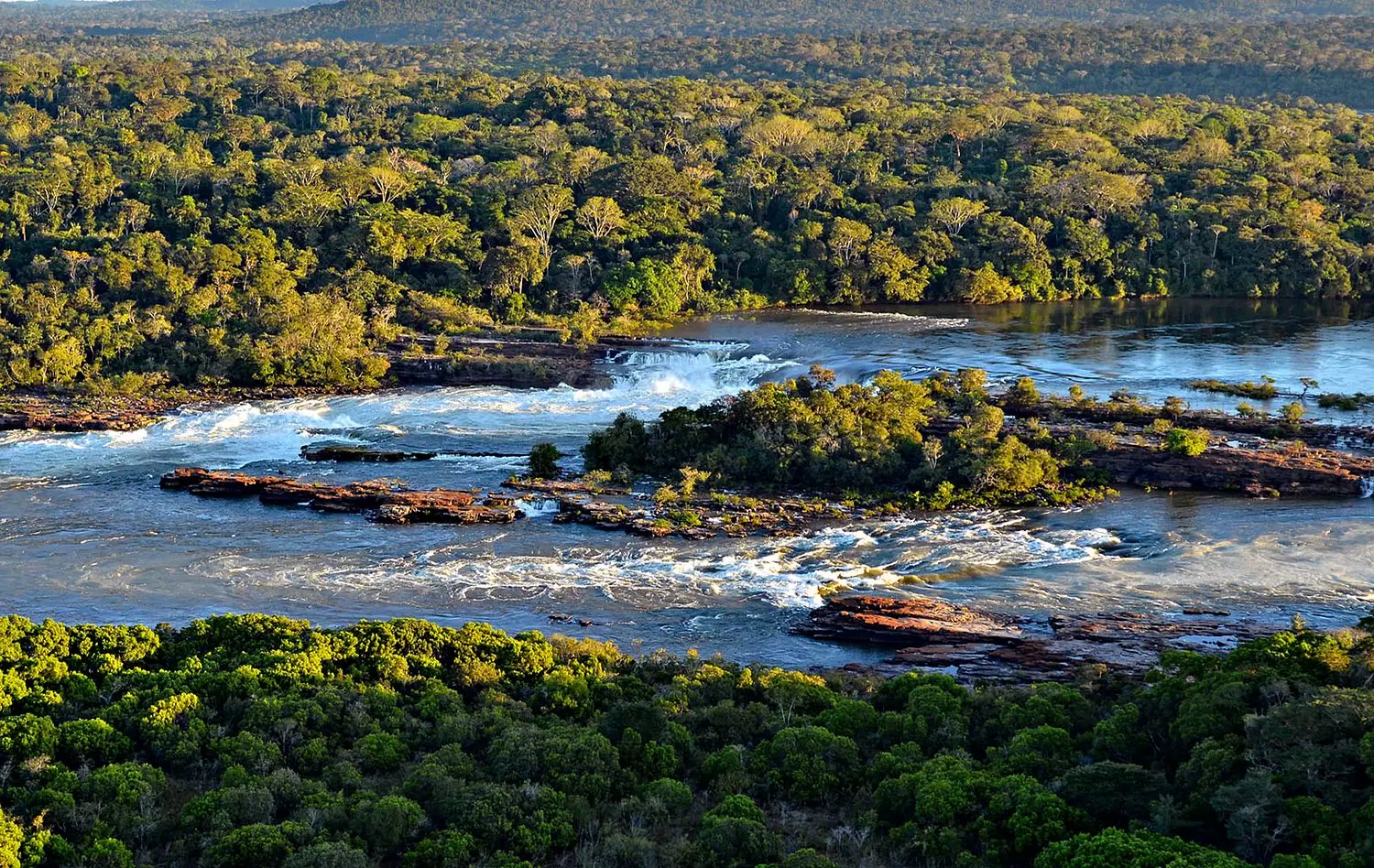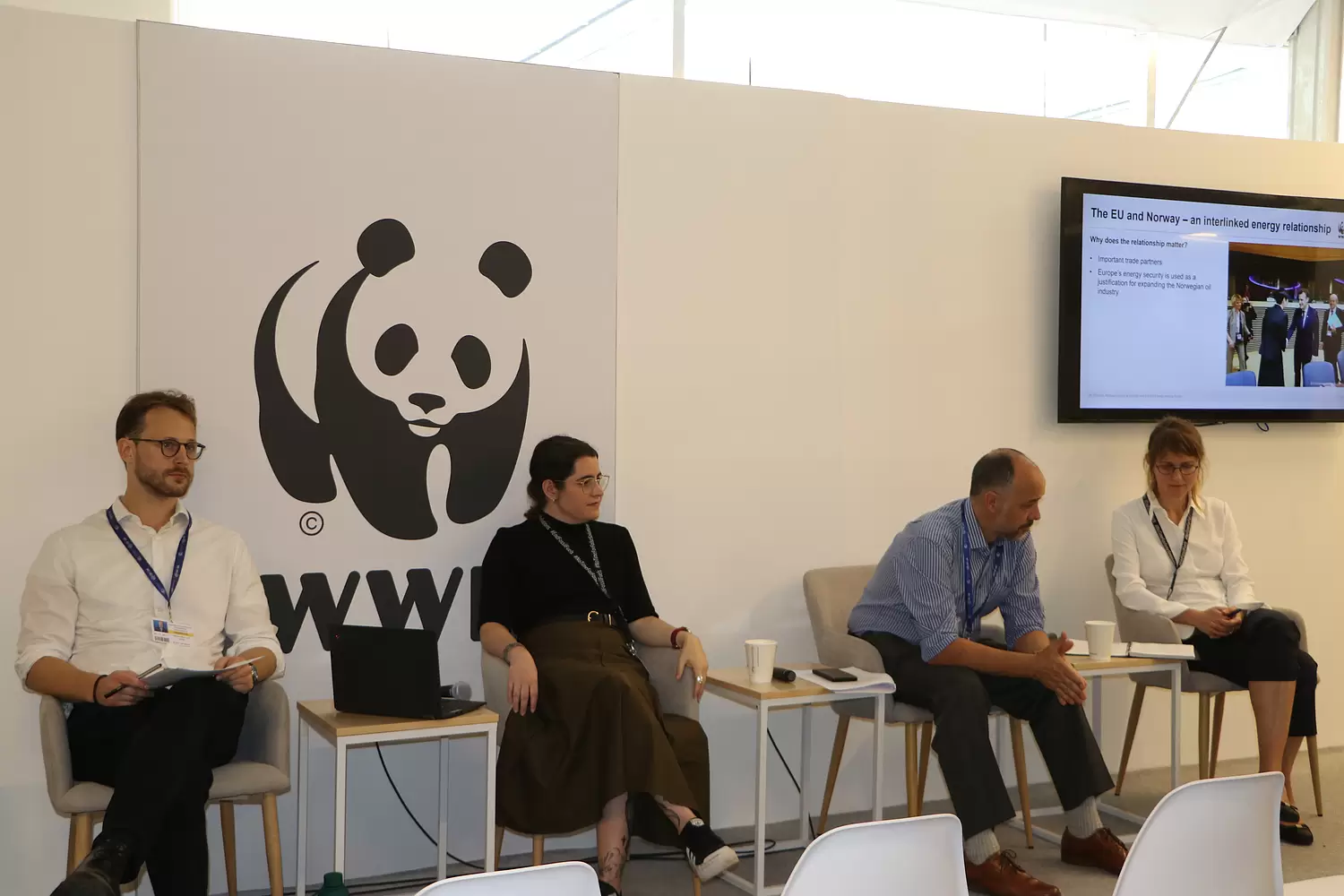The WWF is run at a local level by the following offices...
- WWF Global
- Adria
- Argentina
- Armenia
- AsiaPacific
- Australia
- Austria
- Azerbaijan
- Belgium
- Bhutan
- Bolivia
- Borneo
- Brazil
- Bulgaria
- Cambodia
- Cameroon
- Canada
- Caucasus
- Central African Republic
- Central America
- Central Asia
- Chile
- China
- Colombia
- Croatia
- Democratic Republic of the Congo
- Denmark
- Ecuador
- European Policy Office
- Finland
In 2025, the 30th edition of the UN Climate Change Conference (COP30) will be held for the first time in Brazil, in Belém do Pará, in the Brazilian Amazon. This event represents an important milestone, marking ten years since the Paris Agreement and commemorating 33 years since the 1992 Earth Summit (ECO-92), also held in Brazil, where the United Nations Framework Convention on Climate Change (UNFCCC) was established.
As the host country of COP30, Brazil faces the challenge of mobilizing joint commitments and concrete actions that match the urgency of the climate crisis. To address this crisis, it is essential to focus on key issues such as climate finance to reduce greenhouse gas emissions, adaptation to the impacts of climate change, and mechanisms for loss and damage compensation. Central to the discussions will also be the pursuit of a just energy transition that enables a gradual phase-out of fossil fuels, alongside efforts to combat deforestation and the degradation of native vegetation.
Moreover, COP30 will be a decisive moment to discuss the Global Goal on Adaptation, which defines indicators to guide countries in adopting and monitoring climate adaptation measures. Another crucial topic will be the debate on the implementation of new NDCs (Nationally Determined Contributions), which are essential to advancing global climate goals.
COP30 is expected to foster broad participation from civil society, promoting climate justice and valuing the knowledge and solutions of Indigenous peoples, Afro-descendant communities, and traditional and marginalized groups—among the most affected by climate change. Hosting the Conference in the Amazon highlights this biome as essential to the planet’s environmental balance and underscores the importance of protecting global ecosystems as a key pathway to addressing the climate crisis.
What is COP?
COP stands for Conference of the Parties, the main meeting of countries that are signatories to international treaties organized by the United Nations (UN). These conferences play a crucial role in shaping global policies and actions to address environmental and climate challenges.
Currently, the UN convenes three main types of COPs under its environmental and climate agenda: the Convention on Biological Diversity (CBD), focused on biodiversity protection; the United Nations Convention to Combat Desertification (UNCCD), aimed at tackling land degradation and desertification; and the United Nations Framework Convention on Climate Change (UNFCCC), known as the Climate COP, the most prominent of the three, bringing together 198 countries to debate and negotiate global climate goals and solutions.
Over the years, the Climate COP has been the stage for historic decisions, such as the Paris Agreement (2015), which set global commitments to limit global warming to 1.5°C above pre-industrial levels by:
- Achieving net-zero emissions by 2050;
- Phasing out fossil fuels in favor of cleaner energy systems;
- Promoting broad and inclusive participation in decision-making;
- Creating climate finance mechanisms to support the implementation of climate agreements, among others.
Although the global average temperature in 2024 exceeded 1.5°C—putting agreed-upon goals at risk—the Paris Agreement can still be considered to have had a positive impact on global climate action. According to the International Energy Agency, the world could experience a temperature rise of 2.4°C by 2100 compared to pre-industrial levels. However, this projection is 1°C lower than estimates made before the Paris Agreement was signed.
For these and other reasons, it is urgent to work toward greater climate ambition among countries and to strengthen climate multilateralism.

Latest news from WWF-Brazil

WWF-Brazil's team Agenda at COP30